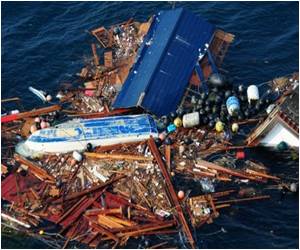The impact of natural disasters, besides causing stress and anxiety, may make the victims to perform serious errors in their daily lives, reveals a new study.

Past research has indicated that more traffic accidents and accident-related fatalities occur following human-made disasters such as the September 11, 2001, terrorist attacks, due to increased cognitive impairment that can lead to higher stress levels and an increase in intrusive thoughts.
However, no research has been conducted on the effects of natural disasters on cognitive performance. The authors were unexpectedly presented with a unique opportunity to investigate the impact of the devastating 2010 earthquake in Christchurch, New Zealand, with participants in a study on human performance they were conducting at the time of the quake.
"We were conducting a [different] study on human performance requiring two sessions," said Helton.
"In the midst of the study, between the two sessions, we had a substantial local earthquake, which resulted in the rare opportunity to do a before/after study. We were quick to seize the opportunity."
The researchers measured participants' cognitive control by asking them to either press a button corresponding to numbers presented on a video screen or to withhold a response to a preselected number presented on the same screen.
Advertisement
Helton and Head also noted distinct differences in pre- and post-earthquake findings depending on self-reported responses to the disaster: If the participants reported being anxious following the quake, their response times sped up and they made more errors of commission, whereas those who reported depression logged slower response times.
Advertisement
"People would find themselves zoning out and making more errors than usual after the quake."
Future research is needed to explore this phenomenon further, but the researchers' findings may point to potentially serious complications arising from postdisaster performance in daily life and work tasks.
These findings also suggest that police, emergency responders, and others working in the aftermath of the disaster may also experience cognitive disruption, which can interfere with their ability to perform rescue-related tasks.
"Presumably people are under increased cognitive load after a major disaster," Helton continued.
"Processing a disaster during tasks is perhaps similar to dual-tasking, like driving and having a cell phone conversation at the same time, and this can have consequences," Helton added. (ANI)
Source-ANI









